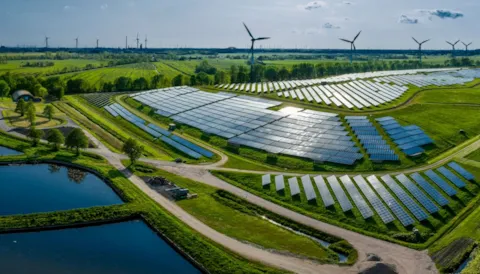
18 December, 2025
GreenpowerMonitor, a DNV company awarded contract by Equinor for use of GPM Horizon in its onshore renewable energy portfolio, which can drive operational excellence
GreenPowerMonitor (GPM), a DNV company and leader in renewable asset monitoring, has announced a new contract with Equinor, the international energy company, for use of GPM Horizon in its onshore rene...